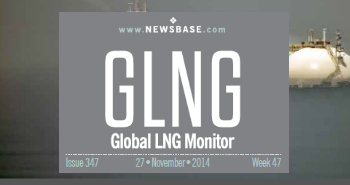US senators eye Latin American and Caribbean LNG markets
Five members of the upper house have re-introduced a measure designed to expedite the permit process for small-scale LNG exports
WHAT: Rubio, Cassidy and three other Republicans have submitted the Small-Scale LNG Access Act for consideration.
WHY: The legislation has the potential to facilitate US LNG deliveries to Latin American and Caribbean markets.
WHAT NEXT: The bill is unlikely to pass, though a nearly identical rule adopted by the Department of Energy will remain in place.
Earlier this week, five US Senators came out in support of draft legislation that would give US natural gas producers incentives for targeting markets in Latin America and the Caribbean region.
In theory, the proposal, known as the Small-Scale LNG Access Act, could benefit countries in these regions, as well as US exporters, by opening up new avenues for the delivery of cleaner-burning fuel. In practice, though, it is likely to fail, largely for political reasons.
The measure
The Small-Scale LNG Access Act was re-introduced in the US Senate on November 3 by five Republican Senators – Bill Cassidy (Louisiana), James Inhofe (Oklahoma), John Kennedy (Louisiana), Marco Rubio (Florida) and Rick Scott (Florida).
The bill is designed to expedite the approval of requests for permission to export US-produced natural gas in relatively small amounts – that is, in volumes of no more than 51.1bn cubic feet (1.447bn cubic metres) per year. It calls for the US Department of Energy (DOE) to expedite the approval of such requests “without modification or delay” on the grounds that such initiatives are “consistent with the public interest”, according to statements released by Cassidy and Rubio.
“The current permitting process for LNG export facilities is expensive, and small-scale projects often are not cost-effective under current conditions,” the statements said. “Reducing the time and investment required for small-scale exports will benefit US production, manufacturing and construction jobs, while also reducing trade deficits with the importing country. Increasing LNG exports, even on a small scale, will positively impact the economies of the United States, as well as the economies of those receiving US natural gas.”
Both Cassidy and Rubio pointed out that the bill was designed to codify an existing rule adopted by the DOE in July 2018. That rule contains language that is “virtually identical” to the Small-Scale LNG Access Act, which the two senators first introduced in July 2017, according to information posted on Rubio’s website.
When the bill was first proposed more than four years ago, members of the Senate’s Energy and Natural Resources Committee voted 13-10 to let it proceed to the floor for further debate. It did not pass in the Senate, however, despite the fact that it had drawn support from both Republican and Democratic members of the committee.
The initial failure of the bill had limited consequences, since the DOE adopted equivalent rules governing requests for small-scale LNG permits under the administration of President Donald Trump. Nevertheless, Rubio and Cassidy have re-introduced the measure in the Senate multiple times since the adoption of the rule; and each time they have failed.
The potential impact
Both Cassidy and Rubio have pointed out that the Small-Scale LNG Access Act is likely to have the biggest impact on energy markets in Central America, South America and the Caribbean. In their November 3 statement, the two senators described these regions as a logical destination for small-scale exports of US-produced gas.
Cassidy’s statement in particular noted that while demand for cleaner fuels is rising in these regions, US gas producers have yet to make substantial inroads there. “The Caribbean small-scale LNG export market represents a relatively untapped outlet; the United States only exported approximately 138 bcf [3.908 bcm] of natural gas to the region from February 2016 [to] July 2021,” it commented.
Rubio and Scott, meanwhile, noted that the measure could also have positive practical consequences within the US, since their home state already has a stake in a number of LNG projects. “Expediting approval of small-scale natural gas exports would strengthen an emerging sector of Florida’s economy and bolster our existing ties with Caribbean and Latin American nations,” Rubio said.
Scott made similar remarks. “Reducing the burden of federal regulations will mean more good-paying jobs for Florida families in the emerging industry of small-scale natural gas exports,” he said. “Anything we can do to make LNG more accessible and cost-effective to our partners throughout Latin America and the Caribbean ... is good for the United States.”
Neither Rubio nor Scott mentioned any specific LNG initiatives, but it is worth noting that Texas-based Eagle LNG Partners is already exporting the fuel to several Caribbean island states from its terminal in Jacksonville, Florida. Earlier this year, for example, the company added Antigua and Barbuda to the roster of its Caribbean customers, teaming up with Antigua Power Co. (APC) and the Antigua Public Utilities Authority (APUA) for an LNG-to-power project.
The three companies broke ground on a new thermal power plant (TPP) that will use regasified LNG as a source of fuel in July. The TPP is being built in Crabbs, a town on the Crabbs Peninsula on Antigua’s northern coast. The area is already home to a 50.9-MW TPP that burns petroleum products, but the new plant will be the first gas-fired facility of its kind on the island.
Eagle LNG Partners is not the only US firm exploring opportunities in the region. Okra Energy, based in Washington State, has been making small-scale LNG shipments to Peru for several years, and in July 2020 its subsidiary Okra Energy Alabama (USA) signed a five-year supply agreement with Énestas Energy & Gas, a privately-owned Mexican firm.
The reasons for failure
Notwithstanding these potential benefits, the Small-Scale LNG Access Act is not likely to become part of the US legal regime this time around.
Even if the bill is approved by the Energy and Natural Resources Committee and passes in the Senate, it will probably fail to clear the House of Representatives, where the Democratic faction holds the majority of seats. That faction includes a substantial number of environmentally minded legislators who would likely oppose initiatives that might benefit the US fossil fuel industry, and their sentiments would likely carry the day if the measure were subjected to a vote in the House. Likewise, President Joe Biden, who made a point of signing an executive order blocking the construction of the Keystone XL oil pipeline on his first day in the White House, cannot be expected to favour such a bill.
Another mark against the Small-Scale LNG Access Act is its obvious tilt against Venezuela, given that the Biden administration appears to be less committed than Trump’s team to maintaining tight sanctions on that country and its oil industry. Both Scott and Rubio stressed that point on November 3, with the former saying that the US should work to reduce the consumption of Venezuelan fuel at TPPs in Latin American and the Caribbean. Likewise, the latter commented: “Importantly, the bill would also ensure that bad actors, including the criminal regimes in Venezuela and Cuba, do not benefit from expedited access to American energy exports.”
Overall, then, the re-introduction of the Small-Scale LNG Access Act appears to be more politically than economically motivated. This move is likely to be viewed positively by US voters who already support the bill’s sponsors, and it may even draw positive attention from undecided voters with a positive view of the gas sector. But it is not likely to pass into law under current conditions, with the Democrats holding the presidency and a majority in the House.
As such, the matter of small-scale LNG export permits will remain in the hands of the DOE, which is still operating under the rule adopted in 2018. It remains to be seen whether the Biden administration will let that rule stand.




Follow us online